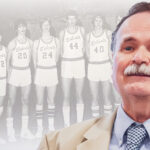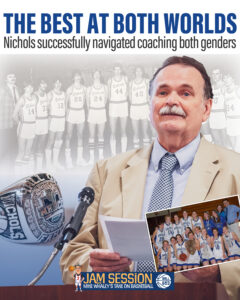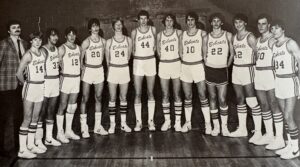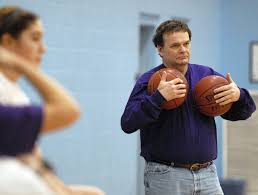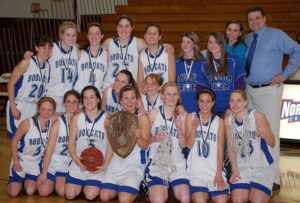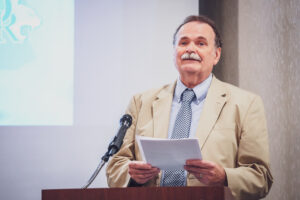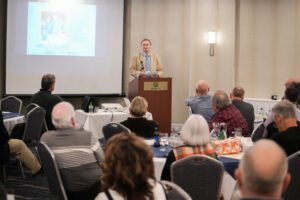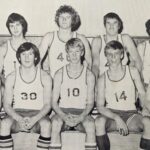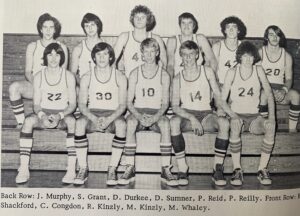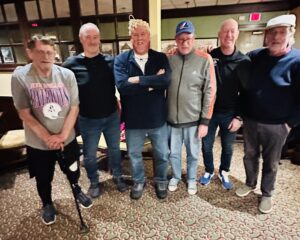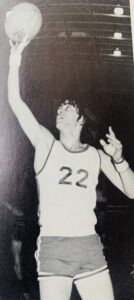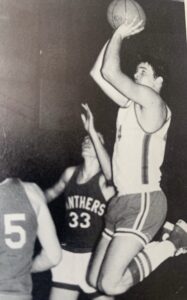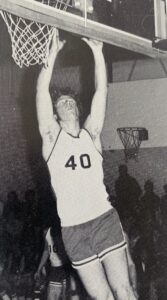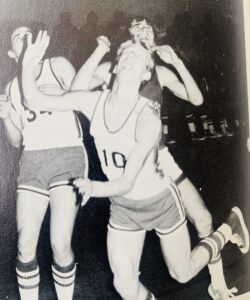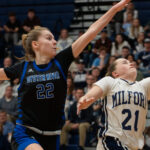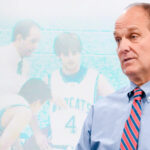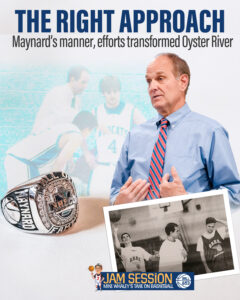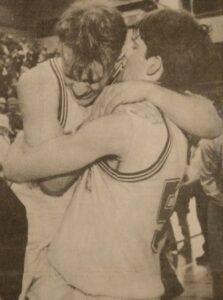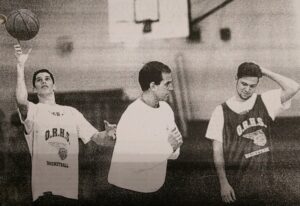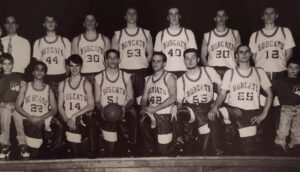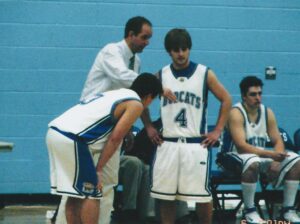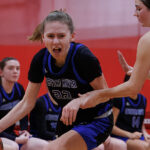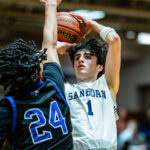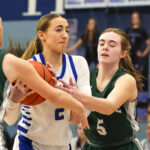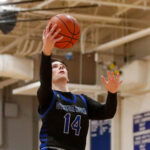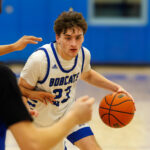 For the fourth-straight season, our Mike Whaley has selected All-Tournament Teams from all eight divisions of NHIAA postseason play. These All-Tourney squads are chosen from final four participants in each division.
For the fourth-straight season, our Mike Whaley has selected All-Tournament Teams from all eight divisions of NHIAA postseason play. These All-Tourney squads are chosen from final four participants in each division.
Congratulations to all on a great postseason run…
DIVISION I BOYS ALL-TOURNAMENT TEAM
Logan O’Connell, Bedford
Connor O’Rourke, Bedford
Javon Massiah, Keene
Kasen Abbott, Keene
Derek Swartz, Portsmouth
Nate McNeff, Exeter
DIVISION I GIRLS ALL-TOURNAMENT TEAM
Kate Allard, Bedford
Mel McCarthy, Bedford
Sammie Sullivan, Londonderry
Brooke Eacrett, Londonderry
Rileigh Finneran, Windham
Emma Smith, Concord Christian
DIVISION II BOYS ALL-TOURNAMENT TEAM
Evan Berkeley, Pembroke
Andrew Fitzgerald, Pembroke
Chase Frizzell, Sanborn
Dylan Rego, Sanborn
Matthew Jernigan, Oyster River
Brady Hegan, Pelham
DIVISION II GIRLS ALL-TOURNAMENT TEAM
Alexa Bausha, Milford
Avery Fuller, Milford
Vivian O’Quinn, Oyster River
Olivia Andersen, Oyster River
Macy Swormstedt, Laconia
Anna Fazelat, Derryfield
DIVISION III BOYS ALL-TOURNAMENT TEAM
Keegan Martinez, Belmont
Treshawn Ray, Belmont
Eli Whipple, Kearsarge
Austin Needham, Kearsarge
Cole McClure, Saint Thomas Aquinas
Tanner Moulton, Mascoma
DIVISION III GIRLS ALL-TOURNAMENT TEAM
Emma Toriello, Saint Thomas Aquinas
Genna Bolduc, Saint Thomas Aquinas
Emilie von der Linden, Saint Thomas Aquinas
Clara Stewart, Fall Mountain
Abby Jarvis, Fall Mountain
Bailee Soucia, Monadnock
DIVISION IV BOYS ALL-TOURNAMENT TEAM
Ryan Walker, Woodsville
Landon Kingsbury, Woodsville
Sam Reagey, Littleton
Connor Roy, Littleton
Isaac Langlois, Gorham
Luke Farland, Concord Christian
DIVISION IV GIRLS ALL-TOURNAMENT TEAM
Delaney Whiting, Groveton
Mylee Kenison, Groveton
Addison Pilgrim, Littleton
Leah Poulton, Littleton
Amaya Beckles, Newmarket
Ryenn Pedone, Holy Family



